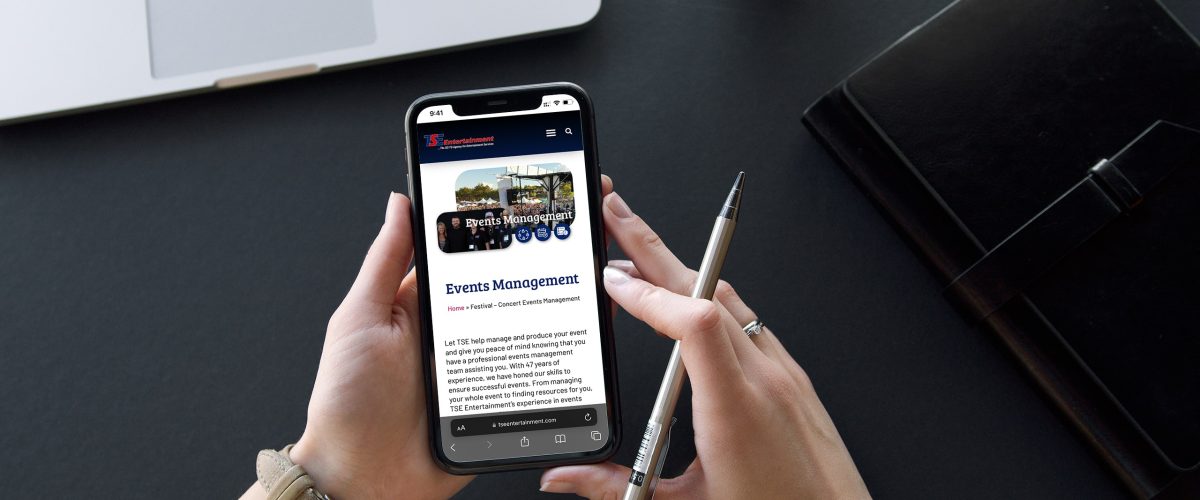A dedicated event website is one of the most effective ways to promote your live event. It allows you to provide potential attendees with all of the information they need to make their decision. It also gives you a platform to capture leads that can be converted into ticket sales. Whether you’re hosting a festival, concert or another live event, having an online hub where people can find out everything, they need to know about your live event will help boost credibility, sell tickets and attract sponsors. In this post, we’ll walk you through the benefits of having an event website and go over the key elements to include on yours.
What is the Goal of Your Event Website?
As a first step, you’ll need to decide what your website’s purpose is. What do you want the site to do?
- Provide information about the event: This can include details like performers, time and event locations. You may also want to include items like registration links and social media accounts so that attendees can connect with you before the event begins.
- Create engagement with attendees: If an attendee has questions or feedback about your event, they will be able to reach out through the website by leaving a message on a contact form or sending an email directly from their browser.
- Increase ticket sales: By making tickets easier for people purchase online versus trying to get them offline (through phone calls or at will-call), it allows you more time for planning without worrying about how many tickets have been sold or whether there will be enough space left once everyone shows up at once during ticket sale days — especially important when dealing with big events!
Why should you create a dedicated website for your event?
Whether you’re hosting a small live music event, a concert or a multi-day festival, your website is one of the most important tools you have to promote your live events. It should clearly explain what your event is about and why people should attend. A website dedicated to only one event will allow you to build credibility and trust with your audience by sharing information on the band, the venue, ticketing information and more.
Dedicated Live Event websites boost credibility, increase attendee engagement, sell tickets, and attract sponsors.
A dedicated website is an important part of the marketing plan. In fact, it can do so much more than just sell tickets. A dedicated live event website builds credibility and attracts sponsors. It also provides a great place for fans to go for information about the artists, past events, or upcoming shows. This helps you build credibility with your audience. People need to trust that you’re going to deliver what you promise before they commit to buying tickets or attending your show — especially if it costs them money! If you don’t have a solid reputation for delivering on your promises, then it will be difficult for anyone who wants something from you (like starting a relationship with a sponsor) to trust they’ll get what they want from doing business with them (like giving away concert tickets).
It’s important that your website is easy to find and navigate so people can easily find what they’re looking for. A dedicated website lets users know they have arrived at the right place, increasing their confidence in the event and increasing their likelihood of purchasing tickets or registering on site. Your event website helps you engage your attendees and create buzz for your event by providing them with all the information they need to know about it (when, where, key performers, price, etc.)
Elements to include on your event website
1) Your Design Should Be Unique to Your Branding
Your live event should have a website designed to be unique to your brand. Your branding tells people who you are and what kind of experience they can expect from your company. It communicates a promise of quality, a positive experience, and/or a memorable time. When designing your website for this purpose, make sure it reflects these promises in its color scheme, fonts, imagery (if any), layout and design elements.
2) Create an Easy Navigation Structure
To create an easy navigation structure, you’ll need to make sure that all of your pages are easily accessible. This can be done by:
- Using a clear layout. Make sure there is no clutter on the page, and use white space to help readers focus on important elements.
- Using icons or other visual cues to reinforce links between pages and help visitors find what they’re looking for more quickly.
- Making sure the website is easy to read. Use plenty of white space, limit text length (or use bullet points), use a consistent color scheme throughout the website; these are some ways in which you can improve readability on a site’s content.
It’s also important you don’t overwhelm users with too many links; if there are too many options for navigation at any given time, it may be difficult for them to find what they’re looking for without some kind of reminder from you about where each link leads! Finally: Don’t forget about those headers! They’re very useful when it comes time during events like these — so make sure they’re up there somewhere so we don’t have any problems later down the line.
3) Create a Mobile-friendly Website
Your website should be mobile-friendly (or even better: designed specifically for mobile devices). People often check their phones instead of computers when they want information about an event—and if your site isn’t optimized for smartphones, then someone may end up going elsewhere when they get distracted by something else during their initial search!
Be sure that all of the links point back to the main page—that way any potential customers who click around will notice all the ways they can participate in whatever cause/event/etcetera brought them there in the first place without having to scroll too far down into unrelated content before finding anything related again (which might discourage them from finishing). In addition, make sure each link has an appropriate anchor text so that people know exactly where those links will lead them once clicked upon (elevator pitch-style) rather than just creating confusion among visitors who aren’t paying attention closely enough.
4) Create a Visual Experience with High-Quality Images and Videos
One of the most effective ways to promote your live event is through a dedicated website. A visually appealing website can help you stand out and attract the right audience, who will be excited about attending your event, as well as giving you an opportunity to highlight specific details about it.
Here are some important things to keep in mind when designing your live event website:
- High-Quality Images and Videos – They should be relevant to the event
- Relevant Content – The content should be consistent with your brand
- Eye-popping Ads – Try different ad formats like popups or interstitials (iFrame)
5) Provide Important Information About the Event
When it comes to promoting your event, you should provide important information about the event as soon as possible. Include all the details necessary for people to purchase tickets and plan their day in advance. These include:
- Location
- Date and time
- Cost of admission
- Lineup (if applicable)
- Contact information for ticket purchases and any other questions about the event (usually a phone number or email address)
Additionally, it’s also helpful to include weather forecasts if there is a chance that inclement weather could affect attendance at your show or festival. Include details like whether there will be food available at this concert/show/festival; if there are any age restrictions; if tickets are required or free, where people should park their cars when coming to this concert/show/festival—and so on!
6) Capture Leads Through Email Sign-Up
Email sign-ups are an effective way to build your mailing list. The email address can be used to communicate with those interested in the event. If you have a dedicated domain name for the event, it will also appear professional when someone receives emails from you. Keep in mind that when promoting a live event, many people will use their work email addresses rather than personal ones. Make sure that this information is clearly disclosed on any sign-up form as well as on the website itself, so no one feels tricked by being signed up without their consent or knowledge.
To Recap, Your Event Website Should Include:
- A clear and prominent call to action so people can easily purchase tickets or register for the event.
- Information about the performance lineup or attraction(s) at your event.
- An FAQ page with information about location, venue rules, parking, and other relevant details.
- Your website’s design should be tailored to the branding of your specific event. In this way you can create a visual experience that your visitors will remember long after they leave.
Do you have an upcoming live event that you’re promoting? TSE Entertainment’s promotion team can help make sure you are utilizing it to the fullest for your promoting your event. Simply give us a call at 800-765-8203 or email info@tseentertainment.com to speak to our event promotion specialist.




